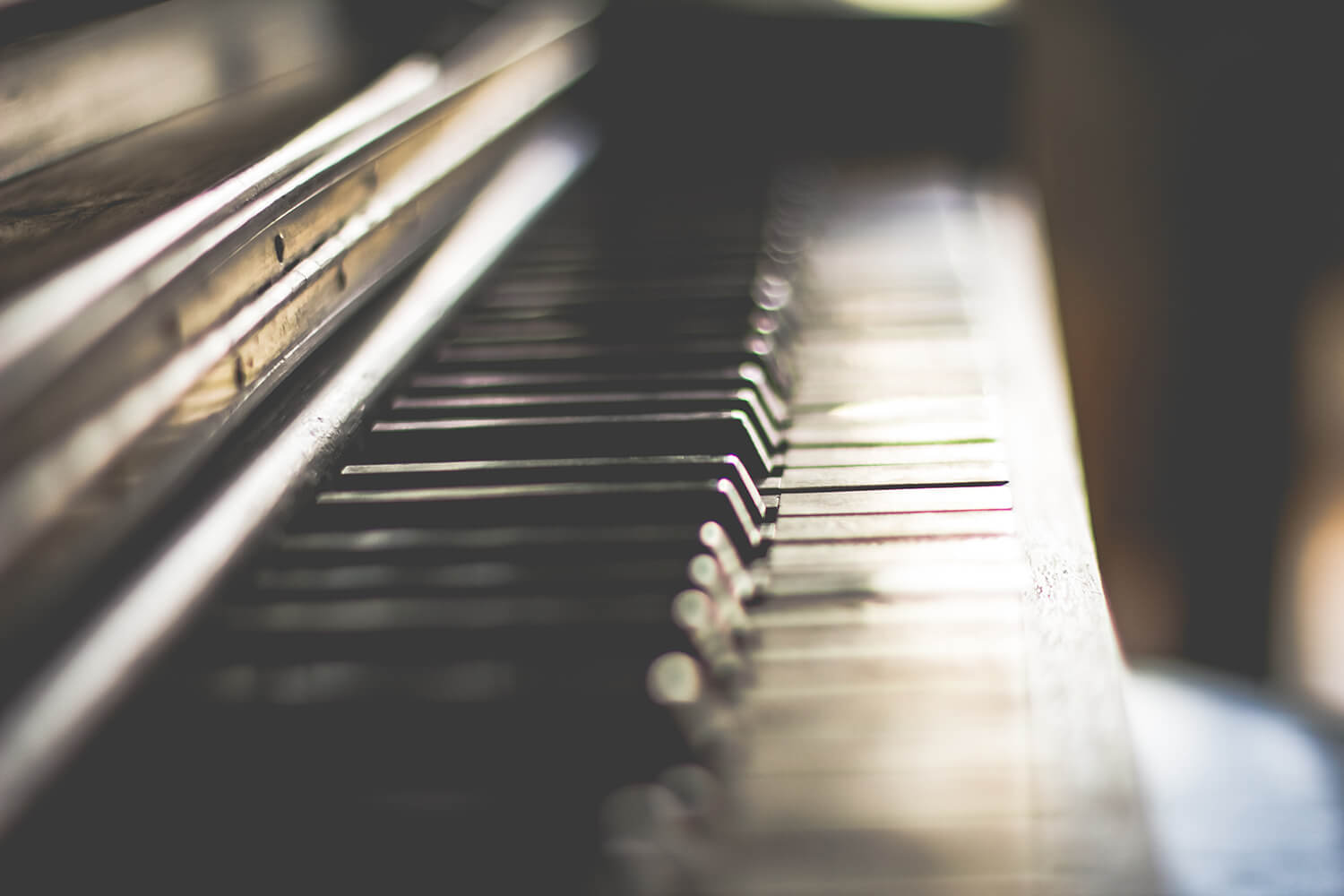Whether you own an acoustic or a digital piano, daily maintenance is a fact of life. Pay extra attention to the black and white keys, or else your grimy and germ-ridden fingers will quickly make that poor piano look sad and neglected. In this article we will discuss basic care, and you will find out how to let your piano keys sparkle!
Acoustic Pianos
Acoustic piano keys can be made of ivory, ebony, cellulose, and acrylic plastic – the latter is used on most modern instruments. If you have an ivory key piano, you will have to do some more research and special steps to take. Whatever the materioal, you need to be gentle when cleaning the keys as they are attached to the hammer and damper mechanisms. While pianos are not constructed in an incredibly complicated way, it´s also easy to mess them up if you don’t know what you are doing!

Basic Maintenance for Acoustic Piano Keys
Almost all musical instruments can be cleaned with either warm water, light soap, vinegar, a spritz of lemon juice, baking soda, and a few clean soft towels. We are not saying you should use all of those ingredients on top of each other, but you will come across a variety of cleaning methods using them on YouTube. It seems every youtuber has their own special brew with which to clean their piano keys! But regardless of what of the above you use, the dos and don’ts are the same!
- Never get the keys wet! Never use too much water. Lightly dampen a soft, lint-free cloth.
- Using a tiny amount of dish soap or vinegar will break the griminess down.
- Do not use any harsh chemicals, especially those hazardous to people.
- Because you are using a damp cloth first and a drying soft cloth after, plan for it to take some time!
- A very soft clean paint brush can help you clean the nooks and crannies.
Now just lightly wash the top and sides of every single piano key. The only way to damage your piano at this stage is if you splash it with water, so – don’t! Take pride in keeping your piano keyboard clean! In school bands, a wide range of talent can be found, but the first chairs and the best players are often those who take meticulous care of their instrument.
A lot of musicians like to use instrument polish and cleaner sprays. Some brands are packaged as guitar cleaners, but whatever substances dissolve grime on guitars work on grimy keyboards, too. Treat any stubborn spots of dirt with a light solvent spray, then gently clean the rest of the 88 keys! If you are ever not quite sure whether a cleaner is suitable for your instrument, test it on a hidden part.
Digital Pianos
Digital keyboards use samples. A sound engineer records a piano note and programs the software to play that note for the right key. And neither you nor the average Jane or Joe have the tools or the expertise to open a digital piano, so don´t try to pry anything open.
Basic Maintenance for a Keyboard
Luckily, you can clean most digital keyboards the same way as acoustic pianos, except you really have to watch out for any water! Only dampen the cloth very lightly, and if you use spray cleaners, spray them into your cloth first, and then wipe. A few things to bear in mind when cleaning a digital piano:
- Always unplug any electronics before cleaning (or repairing)!
- Computer air dusters are incredible cleaners, they can even be used on acoustics!
- Many of the sprays for cleaning acoustic pianos and other instruments can be used.
- One drop of liquid down the wrong place can do real damage – so make sure you are not getting it wet!
- Contact cleaner, commonly called De-Oxit, is great for spraying the internal electronics. It cleans and restores any bad connections.
Don’t Forget Internal Cleaning
A proper cleaning of your piano goes well beyond keeping the keys clean, and that´s why it can be costly to maintain an acoustic instrument. One reason digitals are winning in popularity is that they needless maintenance, less space, and can sound as incredible as the real thing. They are even easy to clean with regular sprays of canned air duster and an occasional damp cloth wipe-down. However, some electronic pianos might require software updates and occasional repairs under the hood, especially if they are valuable.
Now that you know how to clean piano keys, get into the habit of doing it regularly! If you love playing the piano, you need to learn how to care for it. Regular key wipe downs will suffice in the intervals between more thorough cleaning sessions.




